According to many experts and market researchers, this innovative business concept known as dropshipping, opens new doors to the world of entrepreneurial opportunities. Especially for small business owners and start-ups who do not have substantial financial and material resources to invest in stocks and inventory.
But as the competition increases in the future, only those people who really accept novel features of artificial intelligence will have a definite lead. The stage is set for the dropshipping evolution, and it is unclear whether it will be at the hands of AI tools and heavy hitters or any retailer that incorporates dropshipping into their business model.
What is Dropshipping?
In simple terms, it is a system of retail fulfillment, where the merchant does not stock but takes an order and forwards it to another company that stocks the products. However, dropshipping is not the real thing where a customer orders a certain product and instead of providing it from your own stock, you order the product from another supplier who ships the product directly to the customer.
This modelling system helps do away with costs like owning a physical shop front or having to rent a warehouse making it ideal for those who are starting out in business or those intending to cut down on overhead expenditures.
Benefits Associated Dropshipping tools
Considering having many similar models, the key to success in the case of a dropshipping business is efficiency, accuracy, and the ability to timely notice market shifts. Utilizing innovative and cognitive technologies, there are numerous amazing features that dropshipping tools have to bring your business venture to the next level successfully.
1. Product Research AI:
It is crucial to identify the suitable products to sell, which forms the basis for any effective dropshipping company. Product Research AI tools employ the use of AI to filter, process, and analyze the significant stream of data on market trends, consumer behaviors, and competitor activities in order to find potentially lucrative products/niches to target.
It enables one to avoid the horrors of having to do research manually which can take ages and in the process, offers insights that you can use to make better decisions.
2. Pricing Optimization AI:
The methods of dynamic pricing strategies to increase profit. However, dynamic pricing strategies not only have an impact on customers’ purchase behavior, but also help companies to maximize their profits.
Pricing is a sensitive issue and comes with a lot of risks and challenges and the best way to undertake it could be the thin line between success and failure. Automated Pricing software gauges real time market data, customer behavior and competitors’ prices to auto adjust the prices charged hence making sure the prices charged are viable and profitable.
3. Image Recognition AI
If you still doubt this notion, today’s consumers are engaged in an active visual search for goods and services, which is why high-quality photo shoots matter so much.
Real-time Image Recognition AI can thus help to automatically sharpen pictures of products and enhance the look of items displayed to consumers in order to increase the tendency of a ‘buy’ decision.
4. Virtual Assistants
The dropshipping business is your personal companion using IA technologies, Virtual Assistants can be helpful in resolving a number of tasks in the sphere of dropshipping, including customer support, order handling, inventory and suppliers’ interaction.
These intelligent assistants can do most of the routine tasks for you and also have a big impact on designing, planning, and implementing different growth strategies that can be effective for different businesses.
5. Chatbots: Engaging Customers 24/7
Chatbots are the best things ever dressed in the gown of customer relations and expectations, they are available all the time offering solutions to customers’ inquiries or questions, recommending products and helping customers to complete their purchase.
Chatbots integrated with AI are capable of recognizing and interpreting human language and then improving their responses in line with the appearance of new interactions, and that is all done in order to provide clients with organic and satisfying experience.
6. Fraud Detection AI
People are increasing the frequency of making their purchases online, which makes the cases of fraud more frequent. Customer analytics Fraud detection AI tools can be used to monitor the activity of customers and their buying behavior, previous transactions, patterns, and other similar activities in order to prevent any fraudulent activities that may lead to huge losses and may harm the reputation of the business.
Features of the Right DropshippingTools
In essence, success in the practical scenario in the domain of dropshipping highly depends on the degree of efficiency, the speed of operations, and the innovative approach towards market peculiarities.
Although people shop here because there are little overhead costs and no inventories to keep, yet that is precisely where you find the need to acquire the right tools for unlocking the entire possibilities.
1. Seamless Integration and Automation
Processing time of orders in conventional methods takes too much time in the rapidly growing field of drop shipping. It is necessary to consider that the right instruments should be easily integrated with your e-commerce platforms, marketplaces, and supplier networks.
Through this integration, it allows the following important work flows to be processed automatically, for example, order confirmations, inventory movements and shipments.
2. Extensive Product Research Capabilities
Identifying the most appropriate products to sell is one of the defining factors or success or failure in dropshipping. The proper tools should include the powerful product research features that enable users to define the promising and lucrative categories, follow the trends, and define the successful product types.
Special tools like trends, analytics data, and competitors’ analysis let you have an increased chance of selecting popular product sourcing.
3. Dynamic web based pricing and stock control
Pricing and control of inventories or stocks are among the most critical activities that make up a good and profitable dropshipping business. These should provide interactive pricing models that can change the prices depending on the current market prices, visitors, and competing prices.
Looking at various intelligent inventory emphasized tools and processes including the use of monitoring of stock levels, then it would be easier to manage the stock levels, avert stock-outs and evils of high inventories.
4. Intelligent Order Fulfillment
Order management or order fulfillment is a core concept in determining the satisfaction of the clients and achieving brand equity. Choosing the right tools for dropshipping should help you to perform the order fulfillment process efficiently; this includes managing orders from various platforms, tracking shipments and communicating effectively with your suppliers.
Some other unique options that can enhance a customer experience include auto-order forwarding, real-time on-shipping information, and a logo design facility.
5. Robust Supplier Management
On the issues constantly highlighted in the question: The fundamental bases of a dropshipping company that operate in the building of strong relationships with suppliers that are dependable are important in the establishment of a successful business.
The right tools should be advanced to support functions like supplier management that can help assess performance, negotiate on prices and control communications with numerous suppliers.
16 Best DropShipping Ai tools for 2025
Looking forward towards the year 2025, it is expected that more applications of artificial intelligence in the field of dropshipping tools will dominate the market and provide a lot of benefits such as efficiency, data, and inspiration to defeat competitors.
As you will see in this article, there are 16 Best dropshipping Ai tools that are worth checking out in 2025, and for each of them, we have included a selection of features, as well as our personal opinions about their advantages and disadvantages.
1. Easync
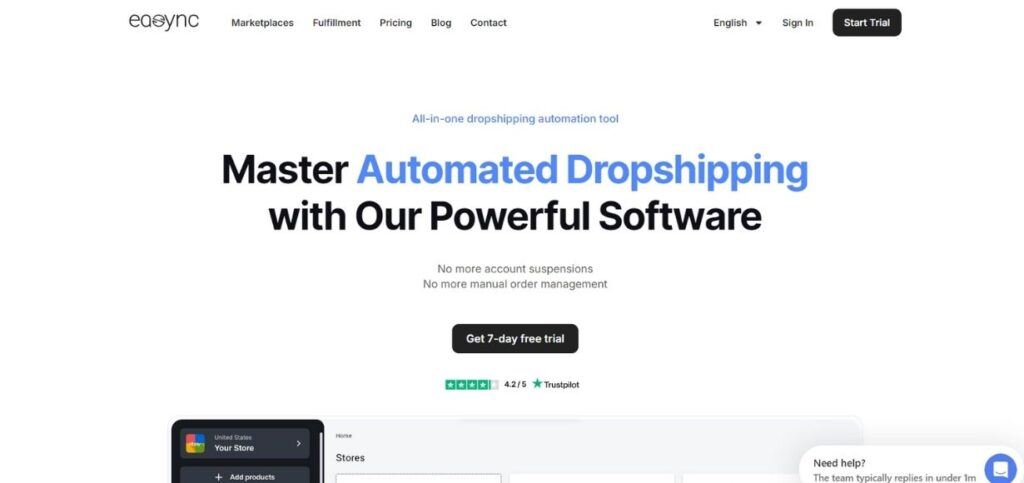
Easync.io is an all‑in‑one dropshipping automation software that simplifies order fulfillment and inventory management across eBay, Amazon, Walmart, AliExpress, and Shopify. Designed for both newcomers and experienced sellers, it efficiently handles the repetitive, time‑consuming tasks so entrepreneurs can focus on growth.
Features:
- Automated order fulfillment across major marketplaces
- Real-time price updates and inventory tracking
- Hot Items Finder to discover trending products
- Chrome extension for one-click product imports
- Analytics dashboard for performance insight
Pros:
- Saves significant time through automation
- Supports multiple marketplaces in one platform
- Great research and listing tools for product sourcing
- Scalable pricing plans with predictable costs
- 24/7 support and extensive Help Center
Cons:
- No dedicated mobile app for on-the-go access
- Some advanced users may find limited customization
- Support and help content primarily available in English
2. SaleHoo
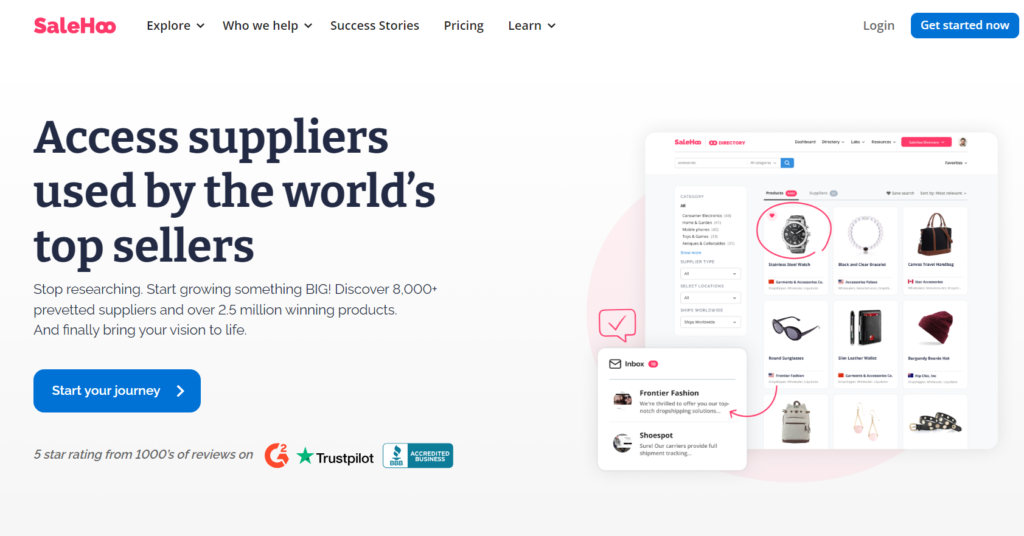
SaleHoo is a reliable and extensive marketplace that enables its members to connect with trustworthy suppliers, use helpful tools for the product search and find useful materials on dropshipping and other related topics.
Features:
- He incorporated an AI-powered supplier verification and rating system.
- Market investigation and prom stance investigation instruments
- Market research regarding possible target audiences and their identification
Pros:
- Access to varied supplier database contains more than 8 thousand suppliers.
- Full guide to beginning for those who decided to start in dropshipping
- Effective training for dropshipping beginners
- Machines, which provide information on products and help save time for analysis
Cons:
- To access such services you need to seek subscription
- There is also a poor connection to other enriched commerce platforms
3. Mailchimp
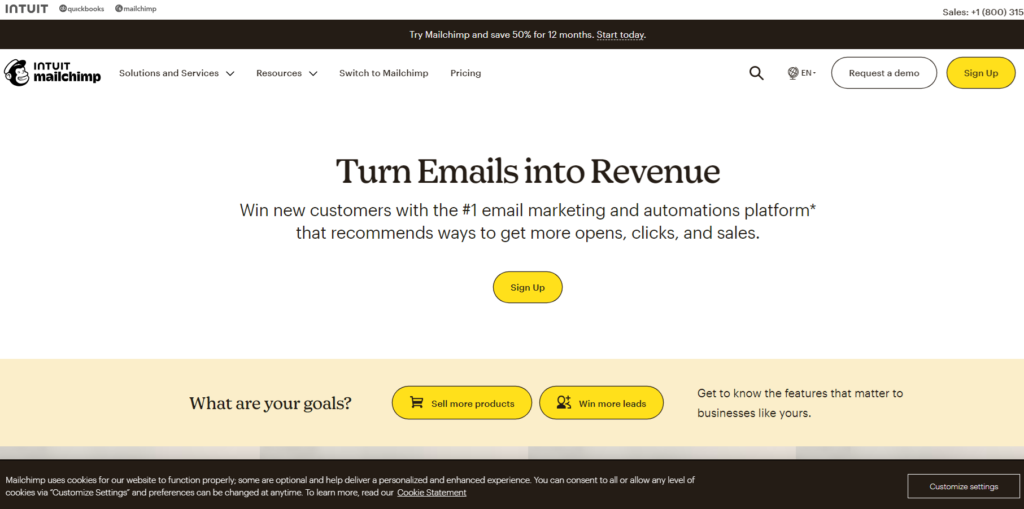
Mailchimp is an industry-specific email marketing tool that has implemented artificial intelligence in design and functionality, allowing clients to create sophisticated campaigns, as well as effectively segment its audience and track the results.
Features:
- Content enhancements and advancements powered by artificial intelligence
- Behavior-based segmentation for forecasted customer behavior
- Targeted campaigns with scripting for data driven event generation
Pros:
- Simplicity and accessibility of the graphical user interface
- Great compatibility with the most used e-commerce software and applications
- Greater availability and visibility of reporting and analytical tools
Cons:
- They have many features but there are limitations given to their free plan.
- Some of the superimposing of the applied Al techniques may entail extra costs.
4. Dropship Spy

The tool known as Dropship Spy is a highly effective platform that allows users to track successful products based on historical trends and competitors’ activity.
Features:
- Product research through the assistance of AI and the analysis of emerging trends.
- Through competitor analysis, one can obtain a thorough understanding of the competitor prices and the available stock.
- Automated on-site product listing improvement
Pros:
- Help with the decision-making process and the choice of products based on clear analysis
- Automating the product listing and price setting process enables saving of time and increasing efficiency.
- Competition continues to rise as more investors set their sights on real estate investment.
Cons:
- Lack of flexibility: integration with e-commerce platforms.
5. Jasper
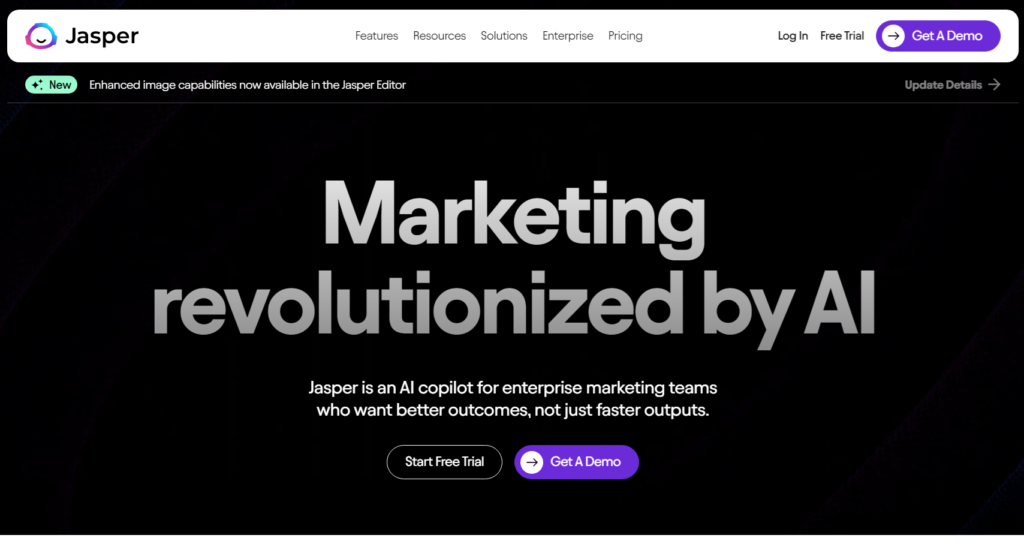
Jasper is an artificial intelligence tool for writing assistance where it can help in creating product descriptions, effective marketing messages, and social media posts.
Features:
- Engaging text generation for various media types
- This is done in a way that the tone and writing style could be easily changed during the work on the project.
- plagiarism check and a grammar checker.
Pros:
- This package enables timely creation of contents for product listings and marketing owing to the pre-researched articles.
- Adjustable language and a conversational tone to align with your brand
- Beneficial for different contexts, whether descriptive, informative or when writing an e-mail.
Cons:
- Lack of Strong links with e-commerce stores
- Skeptics often imply that the flaw in news accuracy and credibility is due to its implication of human editors and overseers.
6. Dropship Genie
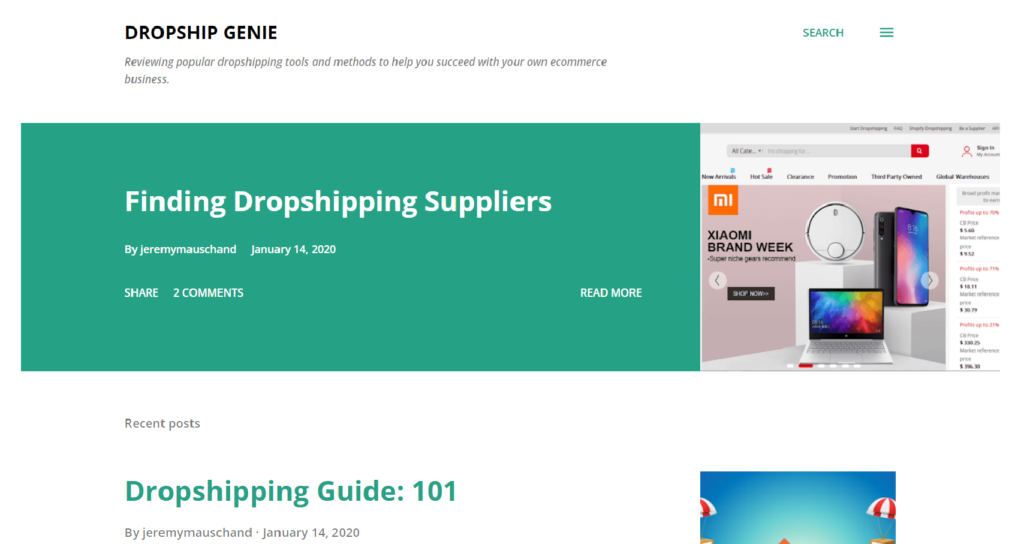
Dropship Genie is an e-commerce software that uses artificial intelligence services in inventory, order fulfilment, and customer relations.
Features:
- Inventory management and demand forecasting insights
- Computerized order placement and delivery around the world,
- The impact of artificial intelligence in customer support in the form of chatbots
Pros:
- Comprehensive package of products to control content of the online shop
- Compatibility with a range of compatible stages and exchanges
- The features which are vital to support inventory and order management with reliable Artificial Intelligence.
Cons:
- Minimal possibility for end user customization.
- Possibility that the learning curve of beginners might be affected in a negative manner.
7. Sell The Trend
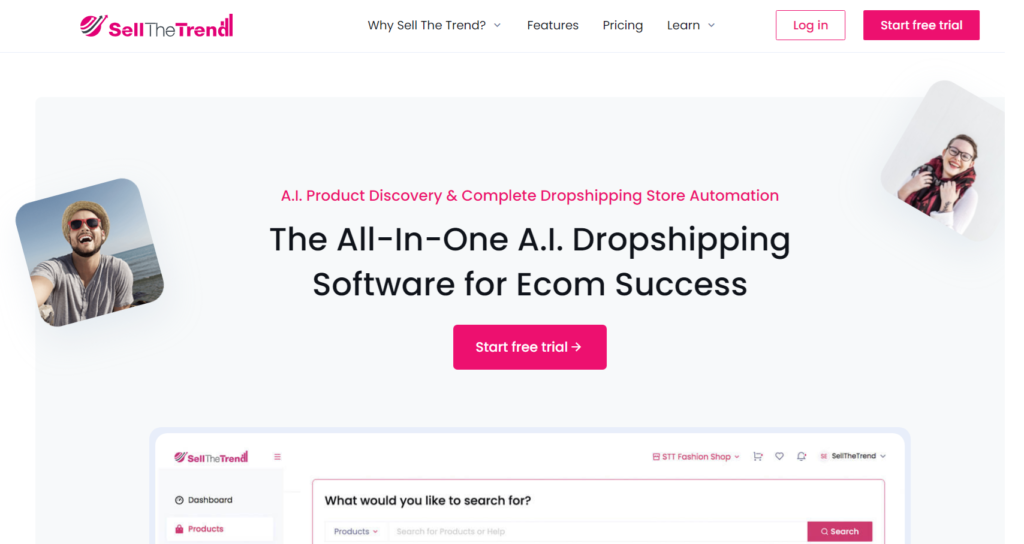
STT is a company that works in the drop-shipping business model where the platform utilizes an artificial neural network to determine what products would be in demand in the future.
Features:
- Identification and analysis of trend on the use of AI
- Direct purchasing of these products from authorized dealers
- The social media as a local marketing tool: advertising trends of popular products
Pros:
- Potential good buying opportunity as consumers are likely to be interested in products that are trending for potential high sales and profits.
- Saving time and leveraging the strength and efficiency of the automation for sourcing and the attraction of new customers.
- As useful as it is for a business to sustain itself it is extremely useful when it comes to challenging competitors.
Cons:
- Integration with most of the largest e-commerce platforms is relatively low.
- The likelihood of products that are trending regularly or are popular being flooded by too many sellers.
8. Brandwatch

Brandwatch is one of the best social listening tools that can be used to monitor the internet and the media for specific keywords and brand mentions, analyze sentiments and key topics and trends.
Features:
- Social media sentiment analysis and social listening using artificial intelligence
- Dashboards and reporting
- Customisable
Pros:
- Provide extensive information concerning consumers’ attitude and market trends.
- Beneficial for targeted outreach to influencers.
- Offers target market segmentation and its ability to generate customizable reports and data visualizations.
Cons:
- Slight compatibility with e-commerce platforms
- steep learning curve
9. Printify

Printify is a printful alternative that deals with product-designing, product customization, and order fulfillment through an artificial intelligence system.
Features:
- Artificial intelligence based on product design
- Customers’ order management and delivery popularity
- The development of strategies and the use of marketing resources for the promotion of product
Pros:
- Quick and easy way to create and sell sale merchandise print on demand
- Marketing as well as automation to save time and optimize order completion
- Product portfolio to include merchandise with an individual touch.
Cons:
- Most of them lack compatibility with the primary e-commerce platforms
- Unable to achieve its potential targets include potential high costs for some product types
10. Shopify

Shopify is one of the oldest and most popular platforms for building an online store and offers various AI resources and services needed for developing a dropshipping business.
Features:
- AI-promoted recommendations of products and business market
- Such automation involves the ability to efficiently manage inventory and make reliable forecasts.
- When the various marketing instruments are integrated into the AI-powered personalization model
Pros:
- It is important that an online store is run by a set of tools that address all aspects of managing the business.
- The advantages of artificial intelligence in dropshipping business cannot be overemphasized
- Integration with other key components such as payment gateways and shippers
Cons:
- Subscription-based pricing strategy is also not very beneficial for all companies and individuals making a fixed monthly payment.
- Limited amount of customization that high end audiences can subject it to.
11. Spocket
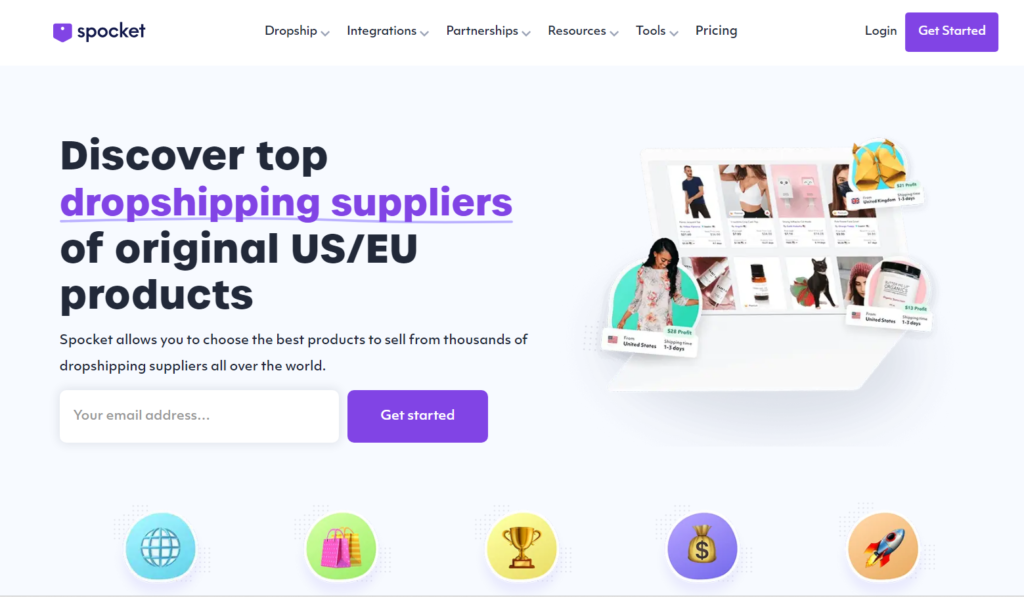
Spocket is an excellent tool for dropshippers since it offers a trusted list of suppliers and also an AI-based search and supply chain system.
Features:
- Investigation of Product
- Recommendation and Trend Analyses through Artificial Intelligence
- Another strategy for achieving automated inventory management is the synchronization of inventory with suppliers.
Pros:
- This means that the supply chain associates of the organization are bound to source their supplies from approved suppliers.
- Robotic innovation and how they save times in the inventory and order management processes
- Beneficial when it comes to organizing and managing the delivery contractors model.
Cons:
- It is also important to note that there is limited integration with the leading e-commerce platforms.
- Possible problems pointed at unstable suppliers and products quality
12. WooCommerce

WooCommerce is an e-commerce plugin for WordPress that also has features and functions in the area of artificial intelligence for the management of products, marketing, and customer base.
Features:
- Advancements in artificial intelligence is product recommendations and personalization.
- Automated inventory management and the ability to more accurately track trends and patterns.
- A pioneering study connecting artificial Intelligence with customer support chatbots.
Pros:
- Combination of tools to effectively run a business utilizing the online store.
- Quick and smooth integration with the WordPress platform and famous payment processors.
- Feasibility and strong recommendations for dropshipping AI tools across the different areas.
Cons:
- Few AV systems allow for some levels of customization
- Some Problems when used with some the WordPress theme and plugins
13. BigCommerce
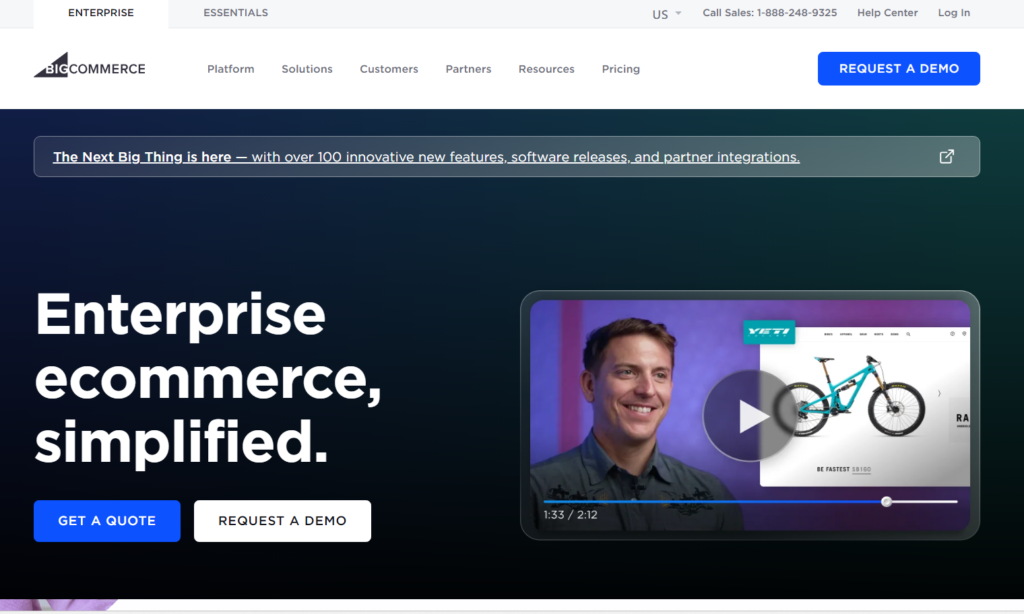
BigCommerce is an open, flexible, and scalable ecommerce solution for modern and growing businesses that provide artificial intelligence solutions for product retailing, promotions, and customer acquisition.
Features:
- AI-driven product recommendations and personalization for the over 50s demographic.
- Automated inventory management and forecasting
- On Fraud Detection and Risk Management through Artificial Intelligence
Pros:
- This seems to offer a range of features that would enable the effective management of an online store .
- Transformative AI approaches that can be applied to the various aspects of dropshipping
- Compatibility with other payment processing mechanisms and delivery companies
Cons:
- A subscription-based pricing model may not be within most people’s price range.
14. Chargeflow

Chargeflow is a service that helps companies implement better payment solutions for clients and minimize short conversion rates by employing AI solutions for more effective checkouts.
Features:
- Self-checkout systems and checkout guardian
- Automating the process of payment retries and recovery
- Fraud prevention and Risk management
Pros:
- Optimising the conversion rates and much lower cart abandonment.
- Payment recovery and retries for those taking long to process; This is where automation saves a lot of time.
- Solid tools to prevent and control fraud and risk
Cons:
- Integration issues with some specific e-commerce platforms
- Pricing or service plans that may cost more for specific offerings
15. Synthesia

To be precise, Synthesia is an AI video Generators that enables dropshippers to create unique product related video and marketing materials.
Features:
- Which spawns videos with photo realistic avatars using Artificial Intelligence.
- The script and Templates can be further customized
- Video aides and optimizations are mostly often automated.
Pros:
- Personalized and interesting content examples
- Automation of the processes that helps save time for making video content and make the process of modifying it easier.
- Quite helpful for product pages as well as marketing among others.
Cons:
- The research reports that there is little evidence of tight integration with other e-commerce platforms.
16. Dropified
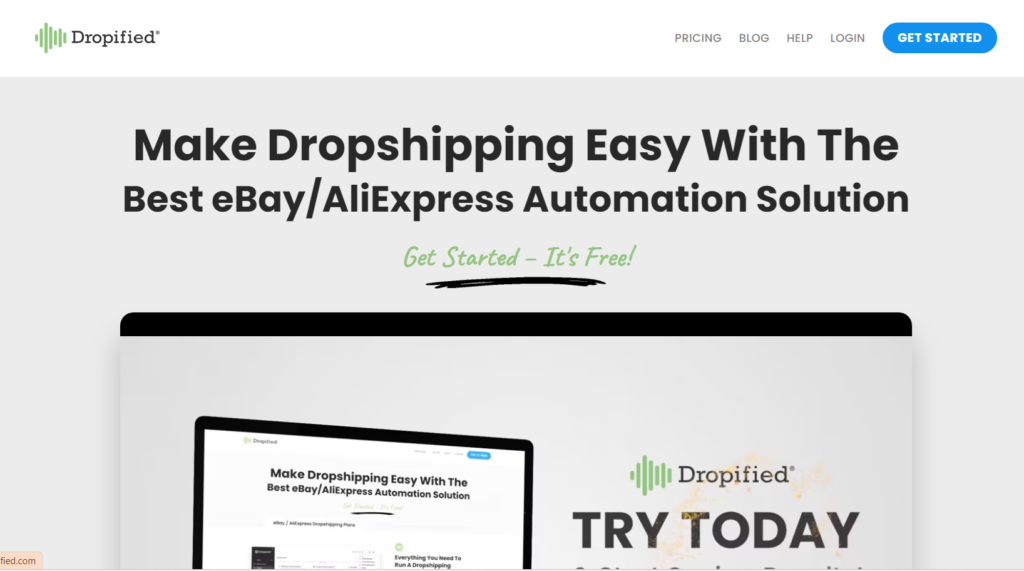
Dropified provides product research and tools for automating order management, besides facilitating the entire dropshipping process.
Features:
- AI used for product discovery and trend identification
- Order processing and delivery through automatization
- The communication tools that are used in-tandem to boost sales of products
Pros:
- Diversified tool package to deal with the aspects of dropshipping entrepreneurship
- Ability to free up time for automating numerous stages of the process.
- Flexible and helpful for making operations smooth
Cons:
- Relatively little connectivity with primary retail selling procedures
- Its main threats relate to supplier reliability and the quality of products and services
Conclusion
While choosing these tools, it will be essential to look at your business requirements, your willingness to spend and technical sophistication. Tools may take more time than the others to learn or may need extra things like personnel and/or equipment.
When it comes to implementing different strategies to your dropshipping business, it is advisable to carry out your research and experiments as much as possible so that you can be sure that the change you are about to make should be adopted fully for your business.
FAQs
A silent feature that may be vital to most dropshippers is a product research tool which enables them to identify potential products to sell. Some of the best sources to find products to sell online are BigCommerce, Sell The Trend.
Order fulfillment tools are tools through which dropshippers provide the supplier shipping details to pass on the orders to the customers directly.
By having pricing and discount tools in place, organizations can keep track of their competitors’ prices, as well as determine the most strategic prices and discounts.
As we mentioned earlier, automation tools help in eliminating repetitive tasks such as order tracking, update of inventory, email marketing among other tasks common among dropshippers.
The goal of a product customization tool is to allow the consumer to design the product according to their personal wishes, as such, it can also be seen as a form of self-expressive advertising.



